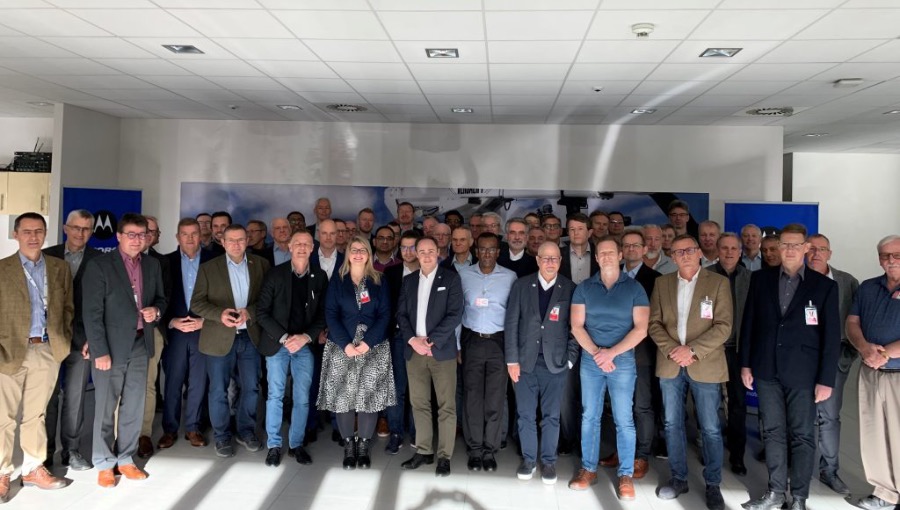
Stakeholders in critical broadband communications gathered last week in Poland to continue the significant advances being made by TCCA members and partners in developing specifications and best practices for the delivery of true critical broadband services to mission-critical users.
The plenary meeting of TCCA’s Critical Communications Broadband Group (CCBG) was attended by more than 70 representatives from organisations* across the world. The CCBG plenary followed a meeting of TCCA’s Broadband Industry Group and a joint workshop between TCCA and GCF on mission critical services. All meetings were hosted by TCCA member Motorola Solutions at their offices in Krakow – the company is celebrating its 30th anniversary in Poland.
The overarching theme of this CCBG plenary was to identify actions to enable mission critical broadband adoption and sustainable development globally.
A key requirement is an interoperable multivendor market, which is why joint efforts across TCCA, GCF (Global Certification Forum) and ETSI are being taken to enable procurement of certified 3GPP conformant products. A task force is to be established to extend the Nordic rugged mission critical broadband devices requirement paper to cover the rest of the world to serve as common device guidance both for the industry and for the procurers.
Another key requirement is connectivity everywhere – including outside terrestrial network coverage. A CCBG task force is already working on Non-Terrestrial-Network (NTN) requirements. It was decided to establish a new Device-to-Device 5G Sidelink task force to study and address market needs; and long-term work to establish a common critical communications position for 6G was initiated.
Many mutually supporting initiatives from North America and Europe were identified, forming the basis for efficient cooperation cross continents for common objectives. Other current projects include task forces working on critical broadband applications, high power user equipment, mission critical broadband callout, mission critical massive video, spectrum allocation, security issues, interworking between narrowband and broadband networks, and 4G/5G roaming for mission critical users.
“The extensive work of the members of the CCBG are the foundation and drivers for the development and delivery of true mission critical broadband,” said CCBG chair and TCCA Board vice-chair Tero Pesonen. “The vast majority of this work is carried out by volunteers – it will be due to these people that critical broadband will be brought to market in a secure and trusted manner, to ensure critical users can benefit from its full potential.”
*Attending organisations included: Canada’s PSBN Innovation Alliance, Nordic operators Erillisverkot Finland, DSB and Tampnet from Norway, and MSB Sweden; ASTRID from Belgium, the French Ministry of the Interior, BDBOS from Germany, Pro-M from Hungary, the UK Home Office, AT&T and FirstNet from the US, Police organisations from Denmark and the Netherlands, analyst house CritComm Insights and vendors Airbus, Bittium, Cellnex, Crosscall, Enensys, Ericsson, Funktel, Funkwerk, HMF Smart Solutions, Leonardo, Mentura Group, Motorola Solutions Nokia, Portalify, Qualcomm, Sepura and Softil. Guest presentations were given by CISA and Texas A & M University ITEC, and updates were also given from TCCA partners EUTC and the 450 MHz Alliance.
Image: International attendees at TCCA’s CCBG Plenary in Krakow